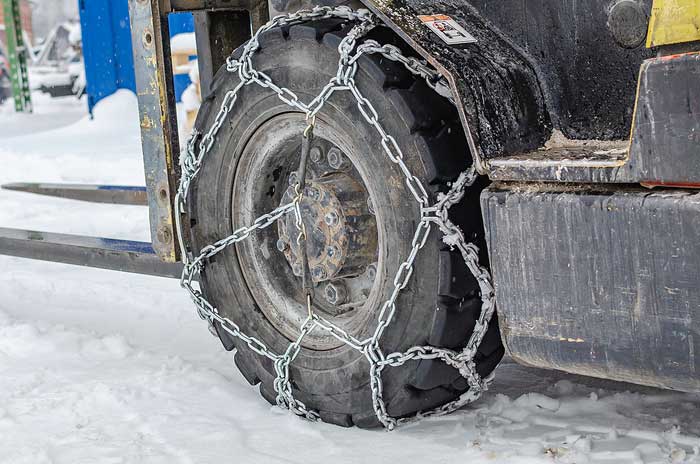In order to operate a forklift safely, it’s important that the weather conditions are taken into account before getting behind the wheel. Safety considerations and precautions put in place can become complex in a bid to protect your workers, especially if your warehouse is spread across two sites.
In a bid to help your operations run as smoothly and as safely as possible, here at Hire Forklifts, we’ve put together a number of hints and tips to get you and your workers through the remainder of the season.
Ensure your forklift operators are fully trained
Even the most experienced forklift operators may find it difficult to navigate their way through snow, ice, fog and other wintry weather conditions. That’s why it’s imperative that your employees receive the right training that enables them to operate safely in the harsher elements.
If your workers don’t receive the appropriate training prior to getting behind the controls, then they risk having an accident, which could cause injury to themselves or others. It could even damage the forklift they’re driving together with any stock it may have been transporting at the time.
Therefore, it’s advised that you have your forklift operators undertake a safety course before the extreme winter weather hits, for the peace of mind of both yourself and your dedicated workers. Unless they have passed their training, they should not be allowed behind the wheel of a forklift.
Emphasise the importance of forklift safety
It’s absolutely essential that any training emphasises the safety of both the operators and others on the ground above everything else. This is because, when ice forms on particular surfaces, it can threaten the integrity of the forklift, causing it to slip, skid, slide or even tip over. It can also affect how well a forklift turns corners, as well as lowering visibility in some cases.
Therefore, it’s vital that staff are aware of how important forklift safety is, even after they have completed their training. They should also be fully aware of how to drive and lift the forklift when it’s carrying a heavy load, so remind them of this when the weather takes a turn for the worse.
Keep operations as simple and as realistic as possible
Prioritise your task list in order of safety. For example, if a task needs doing that has a long deadline, and a forklift operator would need to go out in the snow to complete it, then don’t carry out that task until the weather gets better.
Try and get jobs done that don’t require forklift drivers to go out and brave the wintry weather. You should also keep the tasks as simple as possible, ensuring that forklift operators aren’t putting themselves or others at risk by turning multiple corners or having to navigate rough or loose terrain in snow, ice, frost or when visibility is low, for example.
Provide winter protection clothing
When your workers are distracted or feel discomfort, then you’ll find that their concentration levels decrease. In turn, this has the potential to cause further safety issues and hazards that may not have come up when you planned your winter weather safety training or protocols. Therefore, you should aim to keep your forklift operators warm and visible at all times during the winter months.
Some of the clothing you should be supplying your workers with include:
- A high-vis, thick coat
- Heavy-duty gloves
- Waterproof trouser overalls
- Robust pair of steel-capped safety boots
- A wooly hat (these could even be branded with your company logo)
- A hard hat for safety reasons
- Goggles (if it’s raining, snowing or sleeting at the time of operation)
Regularly maintain your forklifts and conduct safety checks
It’s important that your employees are able to recognise the signs of forklift maintenance issues that have been caused by cold weather, such as the forklift battery losing power. If maintenance and safety checks are carried out on a regular basis, then issues can be picked up quickly, meaning they can be rectified as soon as the problems arise.
This can also make repairs cheaper as it’s like that the issue has been identified before it can get any worse. It’ll also mean that you won’t have to decommission any of the forklifts in your fleet, allowing warehouse operations to continue as they normally would.
Safety checks should also be carried out on every forklift at the start of each day and after an employee has driven one. This should be carried out before anyone else operates the machine as a problem may have presented itself during the last session. Some of the things you should be checking, to name a few, include:
- Steering
- Brakes
- Lights
- Rusted parts or chassis
- Tyre pressure
- Tyre tread
Hire Forklifts are proud to be able to offer our customers transparent forklift hire services that can always be counted upon. Whether you need long or short term hire, we’ll have an option that’ll suit both your needs and your budget. As well as forklift hire, you’ll also be able to rent reach trucks, pallet trucks, order pickers, stackers, scissor lifts and cherry pickers. For more information, get in touch with a member of our professional team today.







